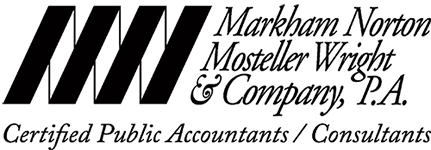Selecting a Tax Professional as a Small Business Taxpayer
When a small business decides to bring in a tax professional, they should know what to expect and how to select a reputable practitioner. The IRS has information and resources to make choosing a tax professional easier.
What a small business can expect from a tax professional
Tax professionals are often able to advise a small business on the most effective way to structure their business. For instance, they can help a business owner decide whether their business interests would be better protected as a sole proprietorship or if another business structure, such as a partnership or S corporation, would serve them better.
Many tax professionals inspect books and records to help a business make sure that it is reporting all income. They can also make sure the business claims all the deductions and credits available to it.
A tax professional can help small business taxpayers answer other questions as well, such as whether they are subject to excise taxes or need to file employment tax returns.
A qualified tax professional may be able to represent the business if it’s contacted by the IRS regarding a tax matter.
A knowledgeable practitioner is also aware of many tax-related scams, like phishing, unclaimed refunds, ghost preparers and others described on the Tax scams/Consumer alerts page of IRS.gov. A practitioner knows that if something sounds too good to be true, it probably is, and they can help businesses avoid and report such scams.
Find a small business tax professional
Taxpayers are responsible for all the information on their income tax return no matter who prepares the return, so it’s important to find a reputable preparer. The IRS offers these tips to small businesses looking for a tax professional:
- Check the IRS Directory of Preparers. It lists preparers who hold professional credentials recognized by the IRS or a Record of Completion in the IRS’s Annual Filing Season Program.
- Check the preparer’s history with the Better Business Bureau or verify the enrolled agent’s status on IRS.gov.
- Ask about the practitioner’s fees up front.
- Find out if the preparer is an authorized e-file provider.
- Ensure the preparer is available throughout the year to help address any questions about the preparation of the tax return.
- Always review the business tax return before signing it.
- Ensure the preparer signs the tax return and includes their 9-digit Preparer Tax Identification Number. All paid preparers must have a PTIN to prepare tax returns.
IRS resources for small businesses
The IRS offers many programs to help small businesses, including the Information Return Intake System, the IRS Business tax account, and other IRS resources listed at Tax information for businesses on IRS.gov.
More information
IRS Tax Tip: 2024-24
___________________________________________
Our firm provides the information on our blog/vlog for general guidance only, and does not constitute the provision of legal advice, tax advice, accounting services, investment advice, or professional consulting of any kind. The information provided herein should not be used as a substitute for consultation with professional tax, accounting, legal, or other competent advisors. Before making any decision or taking any action, you should consult a professional advisor who has been provided with all pertinent facts relevant to your particular situation. Tax articles on this website are not intended to be used, and cannot be used by any taxpayer, for the purpose of avoiding accuracy-related penalties that may be imposed on the taxpayer. The information is provided “as is,” with no assurance or guarantee of completeness, accuracy, or timeliness of the information, and without warranty of any kind, express or implied, including but not limited to warranties of performance, merchantability, and fitness for a particular purpose.


